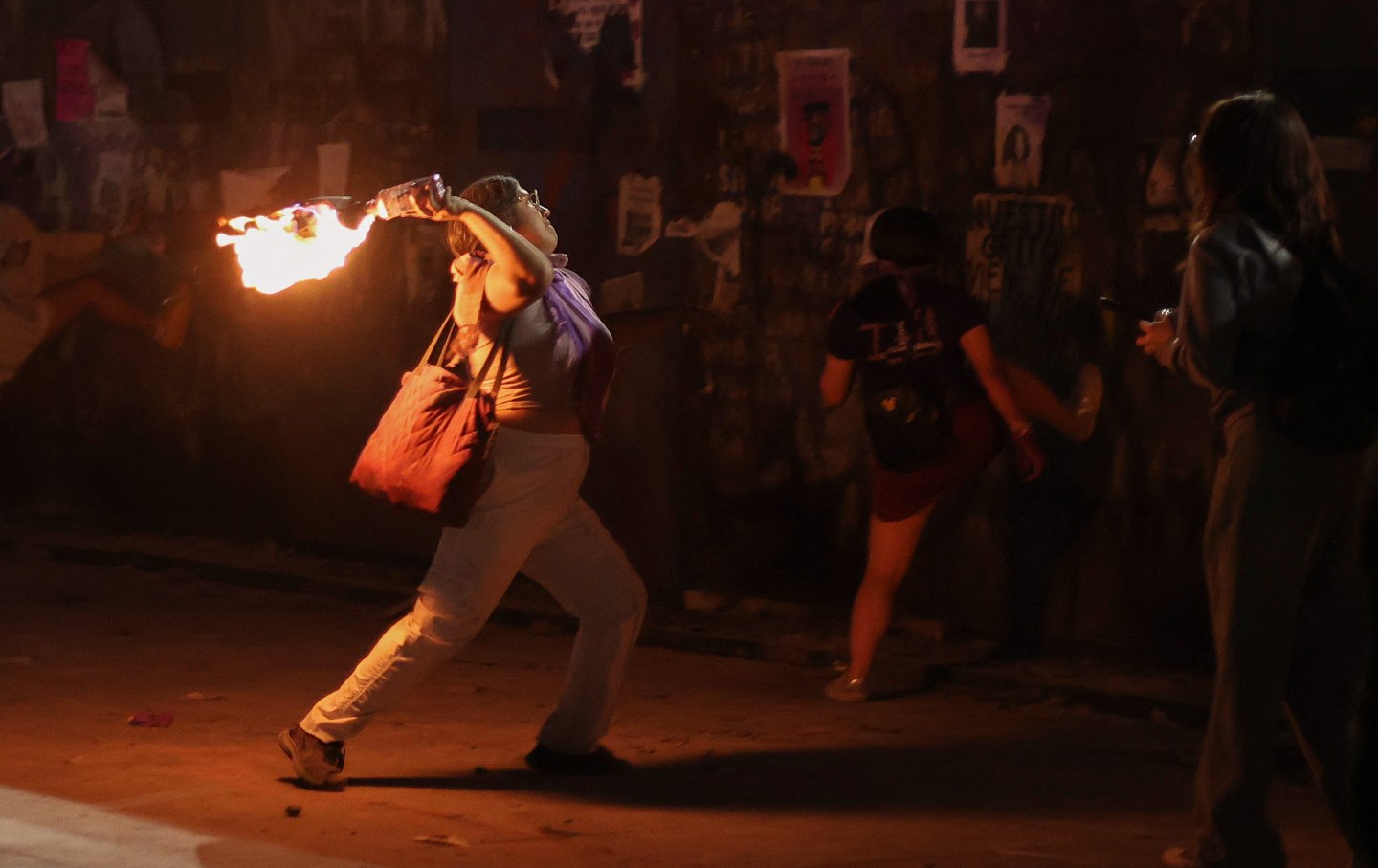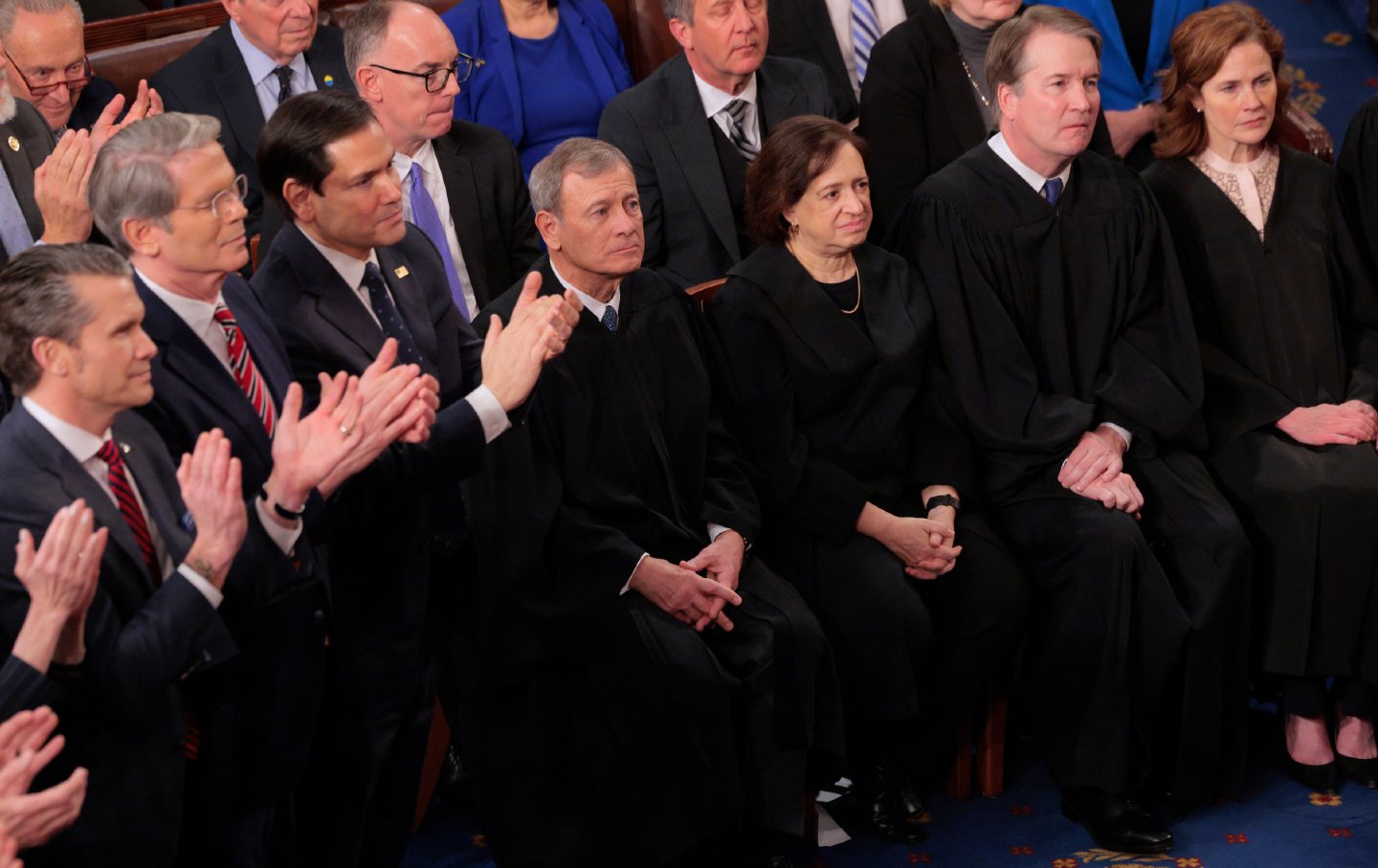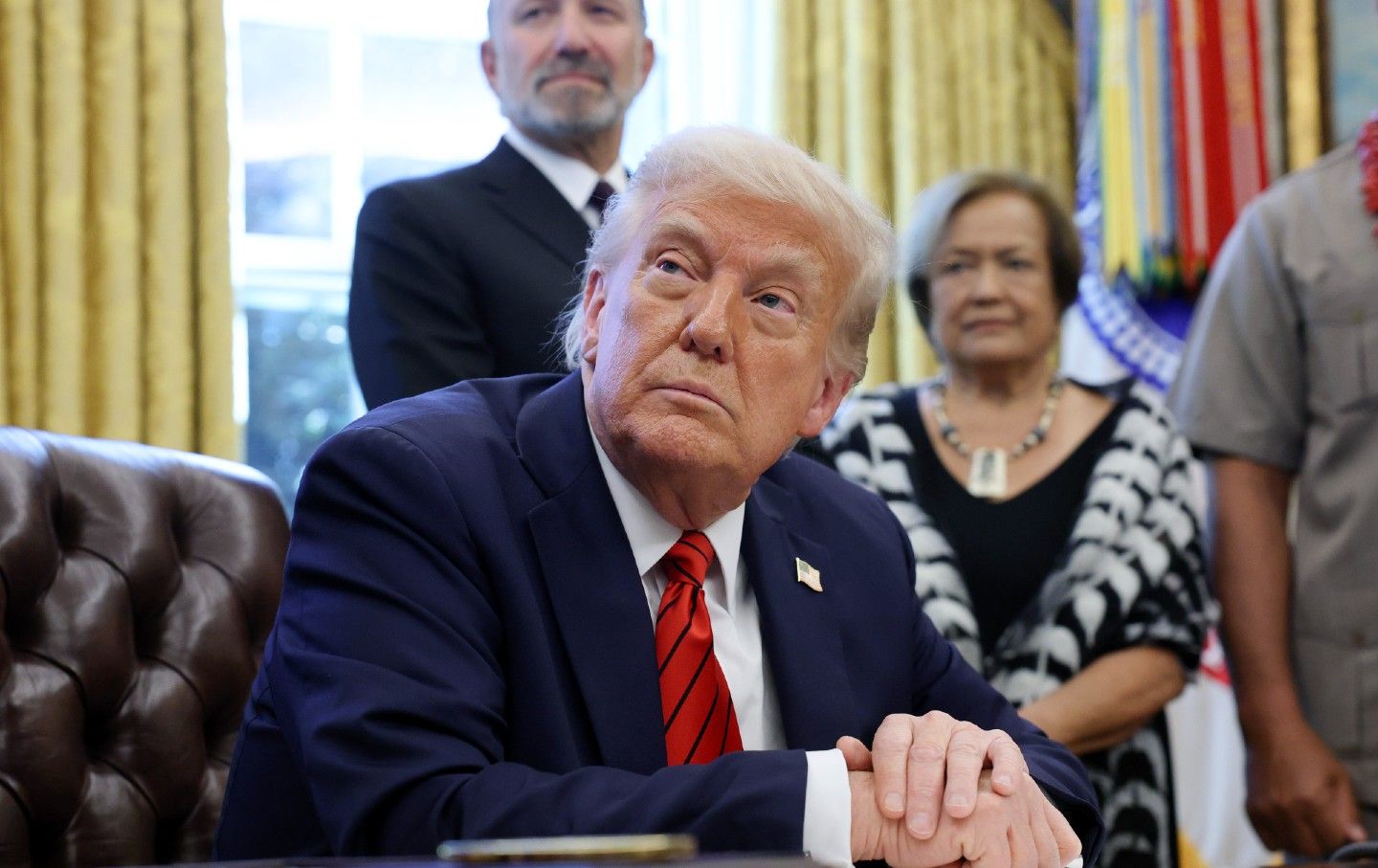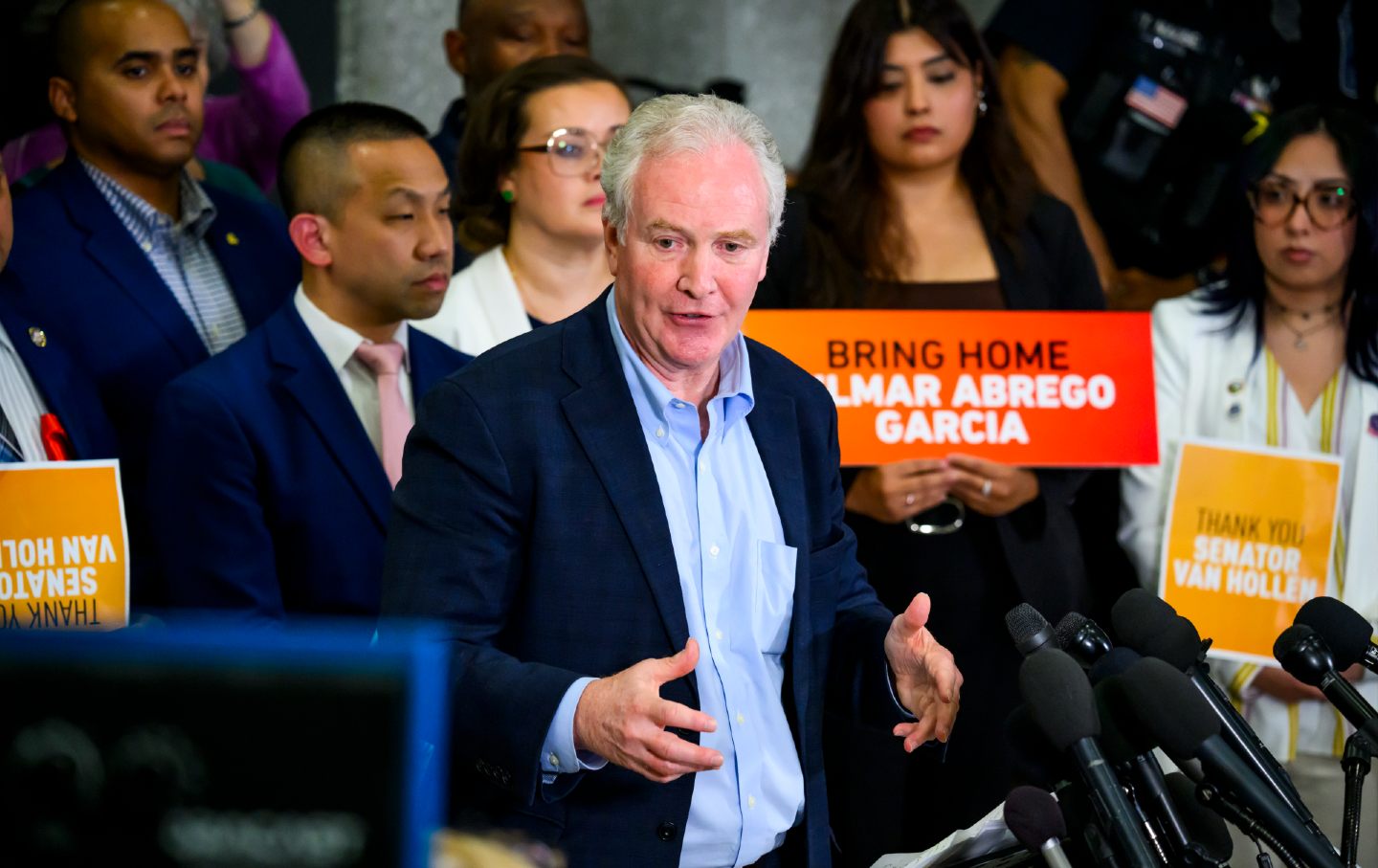Is Political Violence Ever Acceptable?
Natasha Lennard argues that it’s harmful to acquiesce to the state’s determinations of violence, while David Cortright writes that violent acts prevent mass resistance movements.

Yes!
Why do we continue to debate the acceptability of political violence on the left? It is a well-rehearsed and often tired debate, with familiar arguments on both sides. Yet it is evidently not something we will settle easily. But what’s important is that we are still debating it on terrains in which violence is ubiquitous, structural, and consistently accepted—if not lauded.
I will not rehash the most well-worn arguments in defense of political violence here, but they fall into a few broad categories: historical—those who defend political violence point to instances wherein some violent actions were central to success, from slave revolts to anti-colonial uprisings to the civil rights movement; taxonomical—they reject categorizations of violence as determined by the violence-monopolizing state and its sovereign, capital, wherein a broken bank window is deemed violent and the mass denial of healthcare to the poor or forced birth are not; and necessity-based—they question whether radical change is possible without some forms of organized violence against the ruling class and its interests.
For the most part, these abstracted debates don’t play out during the planning of a specific political action. When questions of taking action do come up, it’s almost always in the context of groups that have already found broad ethical agreement on acceptable militancy. If you’re at an open DSA meeting and a stranger starts talking about Molotov cocktails and assassinations, that person is an idiot or a cop.
I am neither an idiot nor a cop, so I have not come here to publicly advocate that the US left, in the face of 21st-century fascism, commit to strategies of armed resistance. The left is grossly out-armed, surveilled, and unready.
My point, though, is that left debates about political violence are rarely in the business of decision-making. Instead, they tend to be activities of judgment—of justification or condemnation: Something violent happens, and we are called to either condemn or justify it, and we argue accordingly. In this way, acts of political violence can work as critical interventions, drawing attention to their conditions of possibility. After a militant act occurs, we ask questions about causes and motives and grounds; we are pushed to consider whether a given state of affairs constituted acceptable grounds for a violent response, whether an existing context is more justified than an act of violence against it.
My focus here is on politically motivated and planned acts of deadly or potentially deadly violence. Many activists have been in protests that involved property damage, empty cop cars set alight, frays with police, scuffles with the far right, and so on, all of which falls into the category of violence according to the state, but the ethics of which I take to be beneath serious intra-left debate when it comes to questions of violence. No doubt some actions at riotous protests can be ill-thought, with risks poorly calculated, but it is harmful to acquiesce to the state’s determinations of violence and nonviolence. Segmenting movements by the old canard of “good protester” versus “bad protester” is a gift to repression.
There are, however, serious debates to have around how we relate to political actions that are unambiguously violent. I will take a minimal stance: A leftist position insistent on condemning all political violence is a reactionary one.
When “I condemn Hamas!” became a prerequisite for entry into public criticism of Israel’s genocide, we saw all too clearly how condemnations of political violence can align with the side of greater violence. The demand that every denunciation of Israel’s eliminationist violence also carry the speech act “I condemn Hamas!” worked to contain the context in which the genocide was understood. It promoted Israel’s narrative, in which history seemed to start on October 7, 2023, and occluded a focus on 75 years of occupation, displacement, and apartheid. It is not the left’s obligation to agree uncritically with every act of violent resistance, but it is our responsibility to reject frameworks of judgment that sustain conditions of constant, systemic violence.
Let’s take another example. Reams have already been written on the outpouring of support that Luigi Mangione has received as the suspected killer of UnitedHealthcare CEO Brian Thompson. A morbid symptom? Perhaps. A rebirth of insurrectionary propaganda of the deed? Unlikely. But thousands of supporters of the assassination had little difficulty in seeing it as an act of defensible counterviolence to a death-dealing establishment of capitalist accumulation.
Writing about the assassination and its aftermath, Sam Adler-Bell noted that “we can’t kill our way out of a society premised on human disposability.” He’s right; for one, we literally don’t have the capacity, and more importantly, political violence alone cannot deliver liberatory collective futures. But a deed like the CEO assassination offers not so much an answer as a question, which should supersede our typical debates over political violence: Which violent activities continue every day without the demand for justification at all?
Natasha Lennard
No!
The support that Luigi Mangione received on social media after he was arrested for the murder of UnitedHealthcare CEO Brian Thompson in December and from protesters outside his pretrial hearing in February was shocking. It reflects not only the callousness and anonymity of the Internet but the false belief that violence can be an appropriate response to injustice.
We should fight against corporate and political oppression, but there are no quick solutions, and violence inevitably makes matters worse. In the struggle for social justice, there is no alternative to the difficult task of engaging politically and organizing mass movements of nonviolent resistance.
Some misunderstand the nature of nonviolence. Many people think of it as passive resistance, but nonviolent action is not merely prayerful protest or an appeal to conscience. It is a means of exercising power. It is a form of contentious politics that seeks to win the support of third parties and shift political loyalties away from the oppressor toward those failed by justice. It’s based on the idea that persistent protest and performative action can reach mass audiences and communicate compelling narratives for justice.
Popular
“swipe left below to view more authors”Swipe →This means that those who participate in nonviolent struggles must be prepared to sacrifice, not only because power never yields without a fight and repression is common against effective movements, but because those sacrifices, when performed by peaceful protesters, have redemptive qualities. Unjustified repression against disciplined nonviolent protest erodes the legitimacy of the oppressor and attracts the sympathy of those who were previously indifferent or opposed to the movement.
The moral logic of using nonviolent means is clear: If we strive for a more just and peaceful world, we must use just and peaceful means. Our ends and means must be compatible. Immoral or destructive means cannot bring about moral and constructive ends.
Too many think that violence is the most effective way to exert political power, but empirical research shows the opposite. The scholars Erica Chenoweth and Maria Stephan studied hundreds of struggles for political change and found that nonviolent methods were twice as effective as using military force in achieving the desired results.
Nonviolent action is also more likely to generate greater democracy and political freedom. Research on political transitions shows that nonviolent campaigns are more likely to result in democratic societies, while violent transitions tend to result in authoritarian regimes. These results tell us that nonviolent action is not only the right thing to do; it is the most effective way of achieving positive change.
What accounts for the success of nonviolent action? The essential ingredient is mass participation. Case studies indicate that a large following is decisive to the effectiveness of civil resistance campaigns. The single most important factor in achieving success, according to Chenoweth and Stephan, is the scale and range of popular participation.
These findings are highly relevant to the choice of using nonviolent versus violent means. Groups that engage in violent and destructive acts are by their nature small and conspiratorial, usually male-dominated, and often require specialized knowledge of weaponry. Nonviolent actions, by contrast, are welcoming to all: Women, children, the elderly, the disabled—everyone can contribute to the cause. Mass nonviolent action prefigures the diverse, inclusive society we seek to create in campaigning for peace and justice.
In the current US context, any attempt to use violence, or to emulate the assassination of the UnitedHealthcare CEO, would be disastrous. It would generate sympathy for the victims and turn people against the perpetrators and the cause of justice they claim to represent. It would activate the powers of repression and lead to the continued erosion of civil liberties. The best viable strategy for countering an assault against the foundations of our democracy is to mobilize massive nonviolent protest.
Many of us are stunned at the breadth and severity of Donald Trump’s onslaught, but we cannot be silent. We must speak out in defense of the Constitution and the rule of law. We must be prepared to put our bodies on the line to engage in peaceful resistance, including civil disobedience. We must act to protect the most vulnerable and defend the institutions of government against those who seek to destroy them.
We must prepare now to mobilize mass participation in the 2026 midterm elections. The goal needs to be delivering a resounding vote of no confidence to Trumpian extremism, fielding and electing candidates who are committed to preserving democracy and restoring constitutional principles.
The task before us is to organize a true majority of Americans to oppose the current trajectory. Acts of violence are contrary to that purpose and will only deepen the crisis and entrench the forces of reaction.
David Cortright
Hold the powerful to account by supporting The Nation
The chaos and cruelty of the Trump administration reaches new lows each week.
Trump’s catastrophic “Liberation Day” has wreaked havoc on the world economy and set up yet another constitutional crisis at home. Plainclothes officers continue to abduct university students off the streets. So-called “enemy aliens” are flown abroad to a mega prison against the orders of the courts. And Signalgate promises to be the first of many incompetence scandals that expose the brutal violence at the core of the American empire.
At a time when elite universities, powerful law firms, and influential media outlets are capitulating to Trump’s intimidation, The Nation is more determined than ever before to hold the powerful to account.
In just the last month, we’ve published reporting on how Trump outsources his mass deportation agenda to other countries, exposed the administration’s appeal to obscure laws to carry out its repressive agenda, and amplified the voices of brave student activists targeted by universities.
We also continue to tell the stories of those who fight back against Trump and Musk, whether on the streets in growing protest movements, in town halls across the country, or in critical state elections—like Wisconsin’s recent state Supreme Court race—that provide a model for resisting Trumpism and prove that Musk can’t buy our democracy.
This is the journalism that matters in 2025. But we can’t do this without you. As a reader-supported publication, we rely on the support of generous donors. Please, help make our essential independent journalism possible with a donation today.
In solidarity,
The Editors
The Nation








